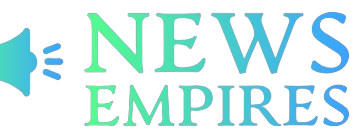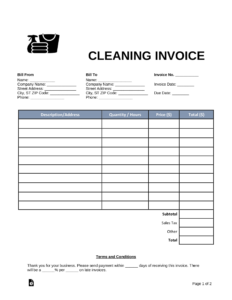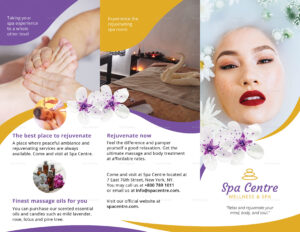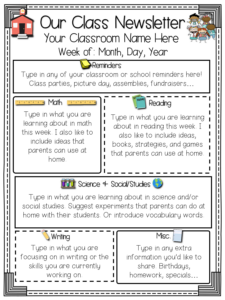Effective communication is a vital skill that can propel individuals towards success in both personal and professional realms. Toastmasters International, a global non-profit organization, has been empowering individuals to become confident communicators and leaders since its inception in 1924. One of the key components of Toastmasters meetings is evaluation, which plays a pivotal role in improving speaking and leadership abilities. Toastmaster evaluation forms serve as a valuable tool in this process, enabling members to receive constructive feedback, track their progress, and foster personal growth. In this article, we will delve into the significance of Toastmaster evaluation forms, explore their different types, and highlight their benefits in enhancing communication skills.
1. Understanding Toastmaster Evaluation Forms
Toastmaster evaluation forms are structured documents used to provide feedback on speeches, presentations, and other communication activities within Toastmasters meetings. These forms are typically filled out by designated evaluators, who are experienced members assigned to evaluate and provide constructive feedback to speakers.
The evaluation form consists of various sections that cover different aspects of a speech, such as content, delivery, language, and overall impact. The evaluators rate the speakers on a scale, provide written feedback, and offer recommendations for improvement. The form serves as a comprehensive guide for the evaluators, ensuring that all relevant aspects are considered during the evaluation process.
2. Types of Toastmaster Evaluation Forms
Toastmasters International provides different types of evaluation forms to cater to the diverse needs and objectives of its members. Let’s explore a few of the most commonly used forms:
a) Speech Evaluation Form
The speech evaluation form is the core evaluation tool used in Toastmasters meetings. It assesses various elements of a speech, including its structure, organization, vocal variety, body language, and use of visual aids. The form encourages evaluators to provide specific feedback and suggestions for improvement, helping speakers refine their delivery and overall presentation skills.
b) Table Topics Evaluation Form
Table Topics is a segment in Toastmasters meetings where members practice impromptu speaking by answering questions or delivering short talks on random topics. The Table Topics evaluation form assesses the speakers’ ability to think on their feet, coherence of their responses, and their use of language and gestures. It enables evaluators to provide valuable feedback on improvisational speaking skills.
c) Leadership Evaluation Form
Toastmasters also emphasizes leadership development alongside communication skills. The leadership evaluation form is used to evaluate members’ performance in fulfilling leadership roles within the organization. It assesses qualities such as planning, organizing, motivating, and decision-making. This form helps individuals develop their leadership abilities while receiving constructive feedback from fellow members.
3. Benefits of Toastmaster Evaluation Forms
The incorporation of Toastmaster evaluation forms in meetings brings forth numerous benefits for both the speakers and evaluators. Let’s explore the advantages of using these forms:
a) Constructive Feedback for Growth
One of the primary benefits of Toastmaster evaluation forms is the provision of constructive feedback. Evaluators use these forms to highlight the strengths and areas of improvement for each speaker, allowing them to refine their skills. By receiving specific and actionable feedback, speakers can focus on their weak areas and gradually build their competence in communication and leadership.
For example, if an evaluator notices that a speaker lacked vocal variety during a speech, they can provide suggestions such as practicing voice modulation or incorporating pauses for emphasis. Such targeted feedback enables speakers to identify their shortcomings and work towards improvement.
b) Tracking Progress and Setting Goals
Toastmaster evaluation forms serve as a record of a member’s progress over time. By regularly receiving evaluations and tracking their performance, individuals can observe their growth and identify patterns of improvement. These forms provide a tangible record of achievements, enabling individuals to set realistic goals, track their progress, and celebrate their milestones.
Imagine a member who joined Toastmasters with a fear of public speaking. By reviewing their evaluation forms from their initial speeches to their present ones, they can witness their progress, from overcoming nervousness to delivering confident and impactful presentations. This visual representation of progress can be immensely motivating and inspiring.
c) Enhancing Communication Skills
Toastmaster evaluation forms play a crucial role in enhancing communication skills. By receiving feedback on various aspects of their speeches, such as clarity, organization, and delivery, speakers can refine their communication techniques. They can learn to structure their thoughts effectively, engage the audience, and deliver messages with impact.
Furthermore, the feedback received through evaluation forms helps speakers become more aware of their verbal and non-verbal communication patterns. They can identify habits such as filler words, excessive gestures, or lack of eye contact, and work towards eliminating them. Through consistent evaluation and improvement, members can develop into persuasive and effective communicators.
d) Cultivating Leadership Abilities
Toastmasters not only focuses on communication skills but also nurtures leadership abilities. The leadership evaluation form plays a crucial role in this aspect. By receiving evaluations on their performance in leadership roles, members can identify their strengths and areas for development as leaders.
For instance, if a member takes on the role of a club president, the leadership evaluation form can provide feedback on their ability to motivate and inspire others, delegate tasks, and make effective decisions. This feedback helps members understand their leadership style and guides them in becoming more effective leaders.
e) Building a Supportive Community
The use of evaluation forms in Toastmasters meetings fosters a supportive and collaborative environment. By providing constructive feedback, evaluators encourage speakers to improve their skills without discouraging or demotivating them. This positive approach creates a safe space for individuals to take risks, experiment with different techniques, and grow as communicators.
Moreover, evaluation forms facilitate peer learning within the Toastmasters community. Members can learn from the evaluations given to other speakers, gaining insights into different speaking styles and techniques. This collective learning environment promotes continuous improvement and encourages members to support and uplift one another.
4. Case Studies: Real-Life Impact of Toastmaster Evaluation Forms
Let’s examine a couple of case studies where Toastmaster evaluation forms have made a significant impact on individuals’ communication skills and personal growth:
a) Sarah’s Journey to Confident Communication
Sarah, a young professional, had always struggled with public speaking. She joined Toastmasters with the hope of overcoming her fear and enhancing her communication abilities. Through regular participation in Toastmasters meetings, Sarah began delivering prepared speeches and receiving evaluations using the speech evaluation form.
Each evaluation provided Sarah with valuable feedback on her strengths and areas for improvement. She learned to structure her speeches effectively, use visual aids to enhance her message, and modulate her voice for impact. The evaluation forms helped her track her progress and set goals for each speech project.
Over time, Sarah’s confidence soared as she received positive feedback and constructive suggestions for improvement. With each evaluation, she refined her skills and witnessed her growth as a speaker. Today, Sarah is not only a confident communicator but also a respected leader within her Toastmasters club.
b) John’s Transformation as a Leader
John, a mid-level manager in a multinational corporation, joined Toastmasters to develop his leadership abilities. As he took on various roles within the organization, he received evaluations using the leadership evaluation form. These evaluations highlighted his strengths as a leader and identified areas where he could enhance his skills.
Through the feedback received, John became aware of his ability to motivate and inspire others but also recognized the need for improvement in his decision-making process. He worked on honing his analytical skills and seeking input from team members before making important decisions.
With each evaluation, John’s leadership style evolved, and he became more adept at leading teams and driving results. Today, he holds a senior leadership position in his organization, and his growth as a leader can be attributed, in part, to the valuable feedback received through Toastmaster evaluation forms.
5. Frequently Asked Questions
Q1. Can I use Toastmaster evaluation forms outside of Toastmasters meetings?
A1. While Toastmaster evaluation forms are primarily designed for use within Toastmasters meetings, the principles and structure can be adapted for evaluations in various settings. These forms can be useful in educational institutions, corporate training programs, or any context where constructive feedback is essential for personal or professional growth.
Q2. How can I become an effective evaluator in Toastmasters?
A2. Becoming an effective evaluator in Toastmasters requires active listening, observational skills, and the ability to provide constructive feedback. Attend evaluator training sessions within your Toastmasters club, seek mentorship from experienced evaluators, and practice giving evaluations regularly. The more you engage in the evaluation process, the better you will become at providing meaningful feedback.
Q3. What are some tips for receiving evaluations gracefully?
A3. Receiving evaluations can sometimes be challenging, as it involves hearing areas where you can improve. However, it is essential to approach evaluations with an open mind and a growth mindset. Remember that evaluations are meant to help you grow and develop as a communicator. Listen attentively, take notes, and ask clarifying questions if needed. Embrace the feedback and use it as a stepping stone towards improvement.
Q4. How often should evaluations be conducted in Toastmasters meetings?
A4. Evaluations are conducted in every Toastmasters meeting for the speeches and presentations delivered during that particular session. This regularity ensures that members receive consistent feedback and have the opportunity to improve their skills with each speech project. Additionally, evaluations can also be conducted for leadership roles and impromptu speaking segments, depending on the club’s structure and objectives.
Q5. Can I provide my own evaluation of a speech without using the official evaluation form?
A5. While it is encouraged to use the official Toastmaster evaluation forms for evaluations within the organization, you can still provide your own feedback and suggestions outside of the formal evaluation process. However, using the official evaluation forms ensures that all aspects of the speech are considered and provides a structured framework for constructive feedback. It also allows the speaker to have a tangible record of their progress over time.
6. Conclusion
Toastmaster evaluation forms play a vital role in enhancing communication skills and fostering personal growth within the organization. By providing constructive feedback, tracking progress, and setting goals, these forms empower members to become confident communicators and leaders. Through the structured evaluation process, individuals can refine their speaking techniques, eliminate weaknesses, and cultivate effective communication styles.
Moreover, Toastmaster evaluation forms contribute to the creation of a supportive community that encourages continuous improvement and peer learning. By embracing feedback and utilizing the insights gained from evaluations, members can embark on a transformative journey towards confident communication and leadership.
7. Frequently Asked Questions
Q1. Can Toastmaster evaluation forms be used outside of Toastmasters meetings?
A1. While Toastmaster evaluation forms are specifically designed for evaluations within Toastmasters meetings, the principles and structure can be adapted for evaluations in other contexts. The key is to ensure that the evaluation process remains constructive and focused on providing feedback for growth.
Q2. How can I improve my evaluation skills in Toastmasters?
A2. Improving evaluation skills in Toastmasters requires active listening, observation, and the ability to provide constructive feedback. Attend evaluator training sessions, seek guidance from experienced evaluators, and practice giving evaluations regularly. By actively engaging in the evaluation process, you can enhance your skills and become an effective evaluator.
Q3. What should I do if I receive a negative evaluation?
A3. If you receive a negative evaluation, it is important to approach it with an open mind and a growth mindset. Remember that evaluations are meant to help you improve, and constructive criticism is an opportunity for growth. Reflect on the feedback, identify areas for improvement, and work on refining your skills. Use the evaluation as a stepping stone towards becoming a better communicator.
Q4. How often should evaluations be conducted in Toastmasters meetings?
A4. Evaluations are conducted in every Toastmasters meeting for the speeches and presentations delivered during that particular session. This regularity ensures that members receive consistent feedback and have the opportunity to improve their skills with each speech project. Additionally, evaluations can also be conducted for leadership roles and impromptu speaking segments, depending on the club’s structure and objectives.
Q5. Can I provide my own evaluation of a speech without using the official evaluation form?
A5. While it is encouraged to use the official Toastmaster evaluation forms for evaluations within the organization, you can still provide your own feedback and suggestions outside of the formal evaluation process. However, using the official evaluation forms ensures that all aspects of the speech are considered and provides a structured framework for constructive feedback. It also allows the speaker to have a tangible record of their progress over time.
8. Summary
Toastmaster evaluation forms serve as valuable tools in enhancing communication skills and personal growth within Toastmasters International. These forms provide constructive feedback, enable progress tracking, and facilitate goal setting. By utilizing the evaluation process, members can refine their speaking and leadership abilities, cultivate effective communication styles, and become confident communicators and leaders.
Furthermore, Toastmaster evaluation forms foster a supportive community that encourages continuous improvement and peer learning. By embracing feedback and utilizing the insights gained from evaluations, members can embark on a transformative journey towards confident communication and leadership.





